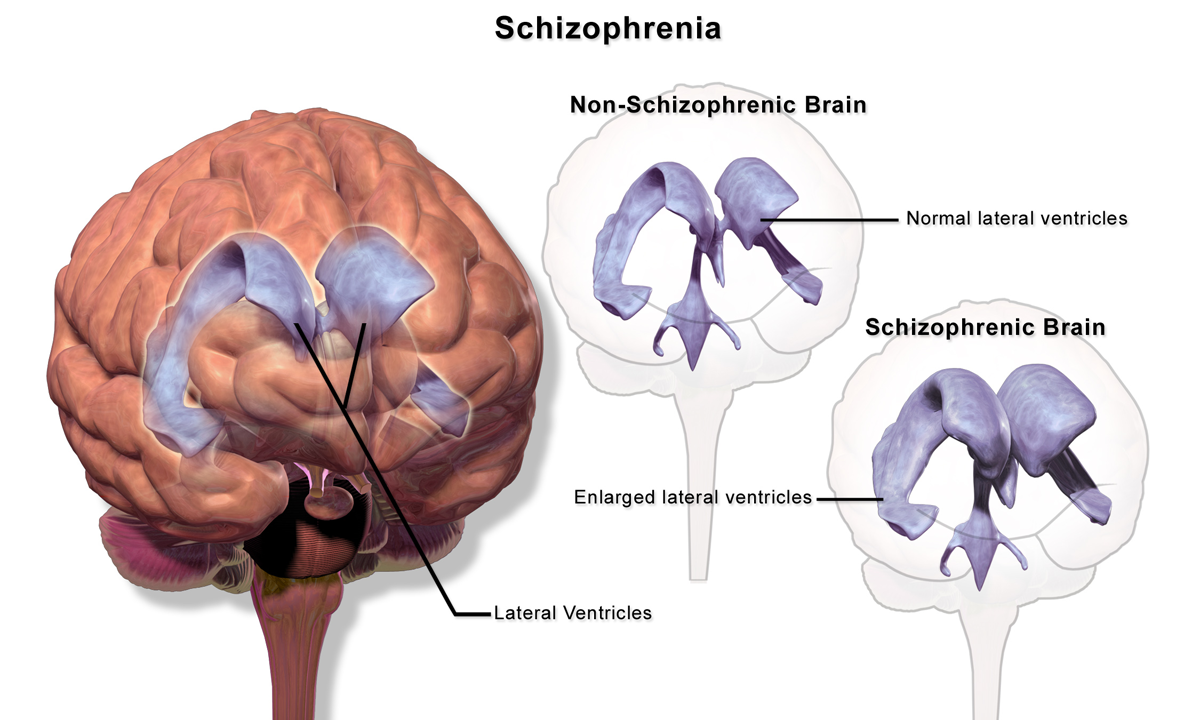No, Schizophrenia Cannot Be Cured with Dietary Changes. This is How the Disorder Is Treated
The United States Health and Human Services Secretary Robert F. Kennedy, Jr. made some embarrassing remarks regarding schizophrenia while on air with NewsNation host Chris Cuomo on Monday, and for people who are living with the incurable disorder, the remarks could be misleading enough to cause a nationwide stir.
The segment featured the HHS secretary's nod to a Harvard psychiatrist who has been trying to convince the public that schizophrenia, a psychotic disorder that causes a detachment from reality, hallucinations, delusions, and disorganized speech and thinking, can somehow be cured by simply eating the right foods.
Wrong. Dead wrong. And terribly unhelpful.
Cuomo nodded his head merely in acknowledgement that the doctor did exist and made such claims but made no effort to challenge the confused health secretary. For people across the nation who heard from Kennedy, it's not the first time the health secretary has made misleading claims, suggesting during one ridiculous press dinner that COVID-19 spared the lives of Chinese and Ashkenazi Jews while endangering the lives of people of other races—also incorrect.
The comments have been dangerous and unfortunate, as people living with schizophrenia could be crushed by dashed hopes because they believe that an adjustment to how they eat could eliminate symptoms of schizophrenia.
Why It Matters
For the public, misinformation and misconceptions about mental illness may lead to devastating consequences. A misinformed public, particularly one confused about schizophrenia, may refuse treatment should they believe a cure comes down to simply eating the right foods. People with schizophrenia who have the wrong idea may resort to self-blame should they not be alleviated of their symptoms, and could even turn hostile towards mental health professionals who are doing their best to try and help.
Misleading information about mental illness also increases stigma, as the public could turn on people they believe aren't doing enough to help themselves. This, in turn, creates a destructive cycle in which those with mental health disorders pursue unhealthy, unnecessary, or counter-productive means to treat their illness.
What is schizophrenia, exactly?
According to the National Institutes of Mental Health, schizophrenia is a potentially severe and disabling mental illness categorized by disruptive, irregular thinking, perceptions, and emotions. People with schizophrenia may see or hear things that aren't there (hallucinations), may believe things that can't possibly be true (delusions), or may experience extreme paranoia, or thoughts that others are out to cause them harm.
Schizophrenia often begins in late adolescence and may worsen as the individual ages or experiences additional hardships or environmental factors. Contrary to what the public may believe, there is no cure for schizophrenia, and there never has been, and suggesting that there is a cure does nothing to help those who are suffering.
What should people with schizophrenia and their loved ones do?
If you have or believe you are experiencing symptoms of schizophrenia, seeking a psychological evaluation is the first priority. A psychiatrist will assess you and determine the severity of symptoms and distinguish schizophrenia from other similar disorders, such as schizoaffective disorder, bipolar disorder, or brief psychotic disorder.
Families of loved ones experiencing these types of symptoms should strongly encourage and support their loved ones in seeking an evaluation. Only after a diagnosis has been made can someone with schizophrenia receive the best kind of care they need.
Treatment for schizophrenia is always provided by a psychiatrist or psychologist and may include the prescribing of second generation atypical antipsychotics such as Risperdal, Abilify, or Zyprexa. These newer drugs are known to cause less side effects than their older, first generation alternatives that were commonly prescribed during the 1950s. These medicines work by bringing balance to the brain by targeting neurotransmitters, which also reduces movement-related side effects, such as muscle tremors and muscle stiffness.
Improving treatment outcomes
Helping people with schizophrenia is a priority, but one where misleading information and claims can have a negative impact on treatment outcomes. People with schizophrenia must be given accurate, reliable information about the disorder, symptoms, causes, and treatment options.
In the future, news anchors and journalists must challenge people who mislead the public and direct those with mental health disorders to the appropriate resources. While Monday night's debacle was unhelpful, mental health experts and organizations are doing everything they can to protect the public, while also debunking myths and misconceptions about the treatment of mental illness.
In the comments below, share what you think is concerning regarding misleading information surrounding the treatment of mental health disorders.


0 Comments Add a Comment?